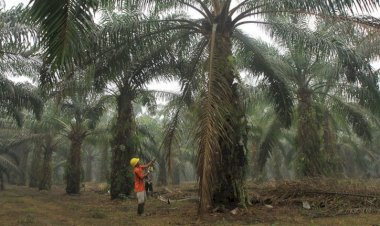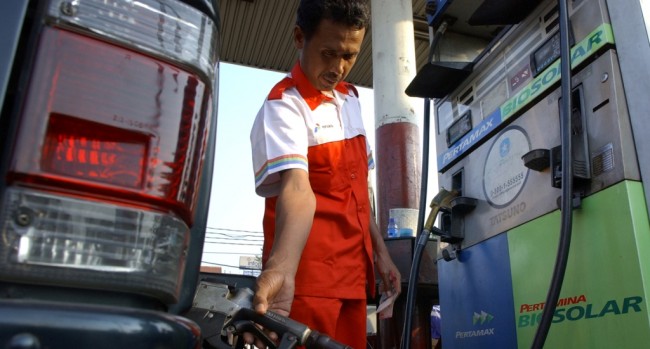EU to Phase Out Palm Oil-Based Biofuel by 2030
An agreement on increasing renewable energy use in Europe was reached on 14 June 2018 between the European Commission, the European Parliament and the Council of the EU (EU Member States).

An agreement on increasing renewable energy use in Europe had been reached on 14 June 2018 between the European Commission, the European Parliament and the Council of the EU (EU Member States). EU negotiators agreed to phase out the use of palm oil in transport fuels from 2030.
The agreement was reached on the revision of the EU Renewable Energy Directive (RED II). Earlier, EU planned to ban palm oil-based biofuel by 2021. Based on the new agreement, Indonesian biofuels are able to enter EU market until 2030.
"The EU is Indonesia`s second largest export market for palm oil. EU imports had increased significantly in 2017, by 28%. The EU is and remains the most open market for Indonesian palm oil,” said EU Ambassador to Indonesia Vincent Guérend on the Fact Sheet published on (16/6/2018). Concerning palm oil, the agreement has at least three key points:
- There is no specific or explicit reference to palm oil in this agreement.
- The outcome in no way constitutes a ban or even a restriction on the imports of palm oil or palm-oil based biofuels. The relevant provisions in the Directive only aim to regulate to what extent certain biofuels can be counted by EU Member States towards reaching their sustainable energy targets.
- The EU market remains open to palm oil imports. The EU is Indonesia`s second largest export market for palm oil, and EU imports had increased significantly in 2017, by 28%.
Following this political agreement on 14 June, the text of the Directive will have to be formally approved by the European Parliament and the Council of the EU. Once endorsed by both co-legislators in the coming months, the updated Renewable Energy Directive will be published in the Official Journal of the Union and will enter into force 20 days after publication.
EU Member States will have to transpose the new elements of the Directive into national law 18 months after its entry into force. The new regulatory framework includes a binding renewable energy target for the EU of at least 32% by 2030 against 27% so far, and maybe higher after a 2023 review.
This will allow Europe to keep its leading role in the fight against climate change, in the clean energy transition and in meeting the goals set by the Paris Agreement, namely limiting global warming to 2°C, and achieving a balance between sources and sinks of greenhouse gases in the second half of this century, on the basis of equity, and in the context of sustainable development and efforts to eradicate poverty.
The Future for Biofuels in the EU
- The text that has been agreed foresees that the contribution of certain categories of biofuels, (bioliquids and biomass fuels, namely those with high indirect land-use change (ILUC) risk and from food or feed crops for which a significant expansion of the production area into land with high carbon stock is observed), will be limited to the 2019 consumption levels.
- In order to achieve the EU`s renewable energy goals, this contribution is later to be gradually reduced until 2030.
- Contributions from biofuels with low ILUC risk will be exempted from these limits according to objective criteria.
- The text does not single out palm oil - or any other crop. Rapeseed, sunflower, soy or palm oil will be treated equally according to the same criteria.
- The agreement calls for a European Commission Delegated Act to establish for which feedstocks a significant expansion of the production area into high carbon land is observed. This will be done on the basis of the best scientific information available.
- Data on production expansion will be collected in a report to be issued by 2019.
- The European Commission is committed to maintain a non-discriminatory and science-based approach in the report and delegated act.



































